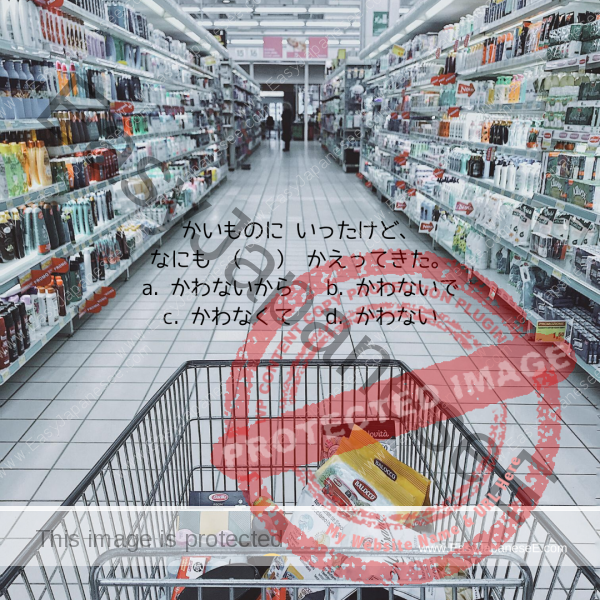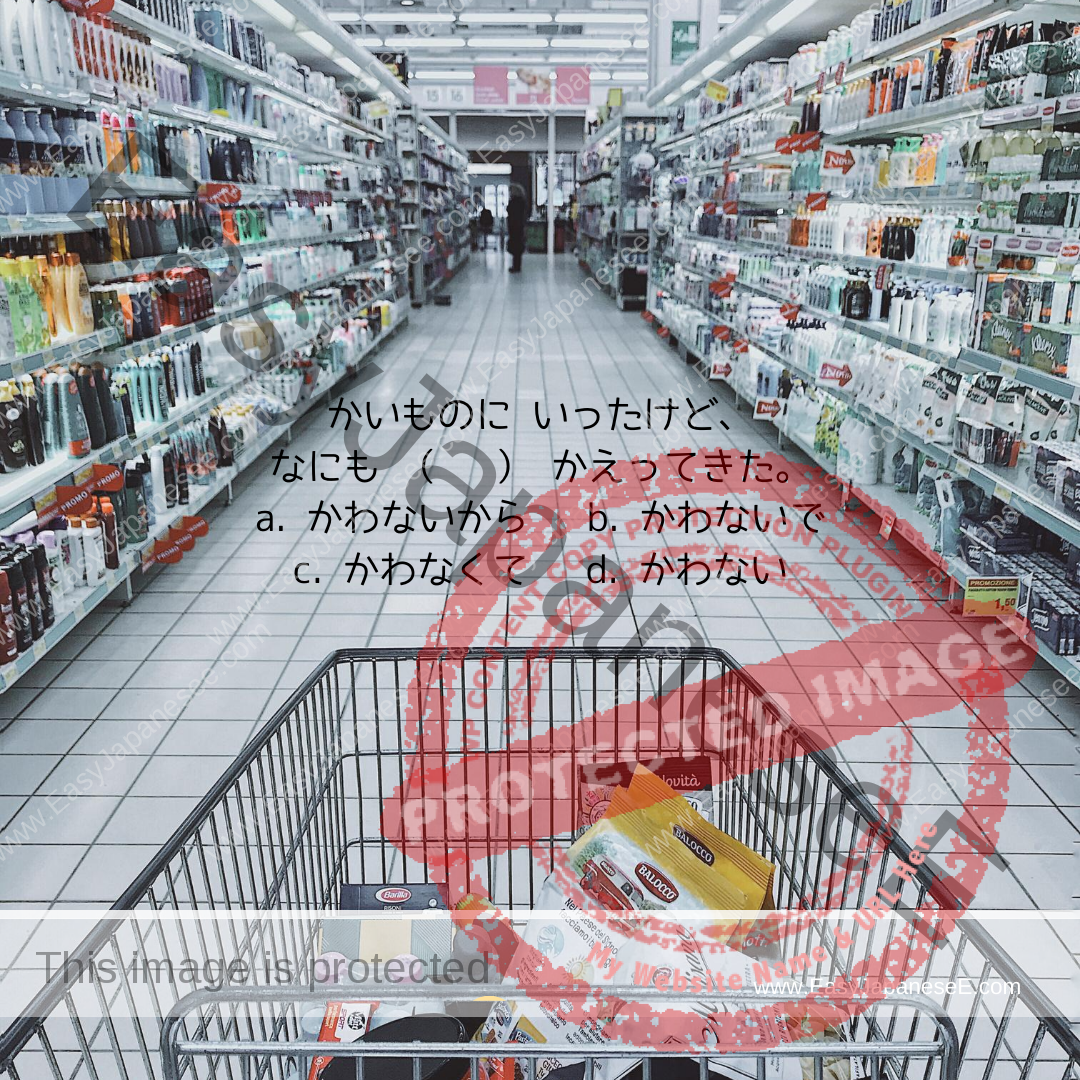
かいものに いったけど、なにも ( ) かえってきた。
a. かわないから b. かわないで c. かわなくて d. かわない
The intended meaning is: I went shopping but I came home without buying anything.
“Without ~ing” in Japanese is [ないform]+で or [ないform without ない]+ずに (i.e. in this sentence, かわずに). ~ずに is in JLPT N3 level. So the answer is b.
がっこうに いかないで あそんでいた。
がっこうに いかずに あそんでいた。
I was entertaining myself without going to school.あさごはんを たべないで がっこうに いっては いけません。
あさごはんを たべずに がっこうに いっては いけません。
You must not go to school without eating breakfast.にぎりずしは はしを つかわないで てで たべます。
にぎりずしは はしを つかわずに てで たべます。
We eat nigiri by hand without using chopsticks.ローマ字(じ)で書(か)かないで、ひらがなで書(か)いてください。
ローマ字(じ)で書(か)かずに、ひらがなで書(か)いてください。
Please write it in Hiragana, not in Roomaji.バスに乗(の)らないで歩(ある)いて帰(かえ)った。
バスに乗(の)らずに歩(ある)いて帰(かえ)った。
I walked home without catching a bus.勉強(べんきょう)しないでテレビを見(み)ていてはいけません。
勉強(べんきょう)せずにテレビを見(み)ていてはいけません。
You must not be watchin TV without studying.辞書(じしょ)を使(つか)わないで作文(さくぶん)を書(か)いてください。
辞書(じしょ)を使(つか)わないで作文(さくぶん)を書(か)いてください。
Write an essay withoung using a dictionary.ジョンさんは、はしを使(つか)わないで、じょうずにラーメンを食(た)べる。
ジョンさんは、はしを使(つか)わずに、じょうずにラーメンを食(た)べる。
John eats ramen well without using chopsticks.
~ないで can also be used with ください and makes a sentence to ask “not to do something.”
えさをあげないでください。
Please don’t feed (the animals).車内(しゃない)では携帯(けいたい)電話(でんわ)を使(つか)わないでください。
Please don’t use a mobile phone in the cabin.
If you don’t use ください, that becomes a more casual way of asking “not to do something” used among people closer to each other.
笑(わら)わないで。
(Please) don’t laugh.行かないで。
(Please) don’t go.
Actually ~ないで is a negative てform of a verb. The reason why I said “a” negative てform is because ~なくて is also a negative て form and ~なくて is usually used in set expressions or to describe a reason for the latter part of the sentence.
がっこうに いかなくては いけません。
I must go to school.
がっこうに いかなくても いいですか。
Don’t you have to go to school?
バスが こなくて こまった。
I was at a loss because the bus didn’t come.
Not buying anything is not the reason for coming home, so a and c are not suitable for the caption sentence.

